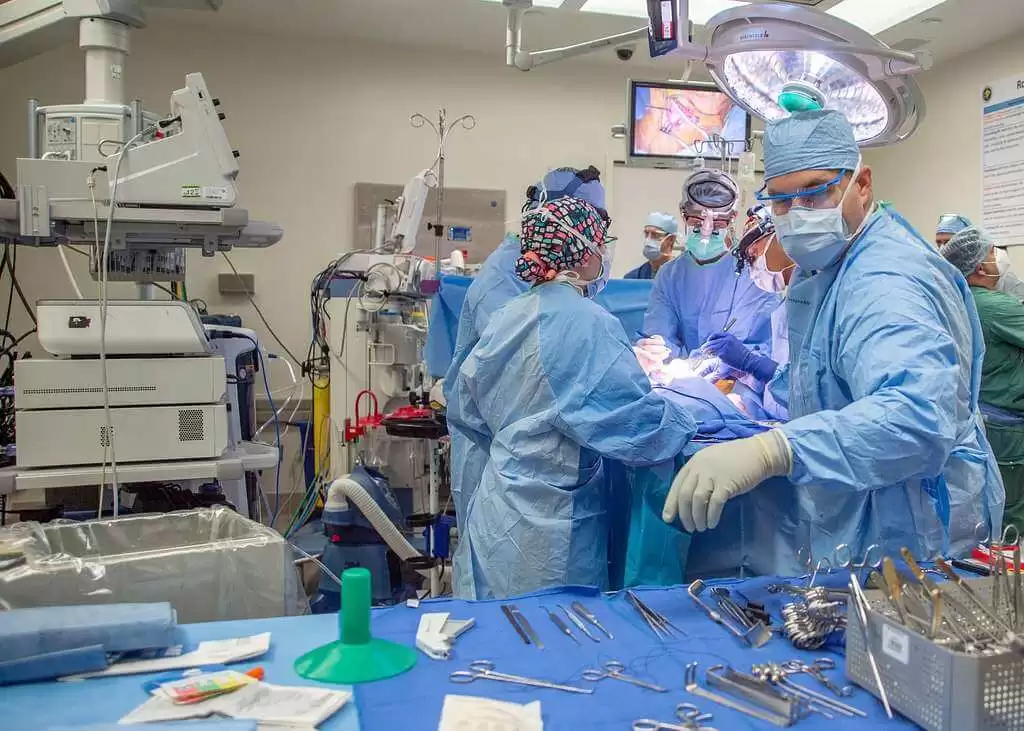A Comprehensive Guide to Surgical Procedures and Practices
 Introduction
Introduction
Surgery, a vital component of modern healthcare, encompasses a wide array of procedures and practices aimed at diagnosing, treating, and preventing medical conditions. In this comprehensive guide, we will explore the world of surgery, its various specialties, and the key principles that govern surgical practices.
Table of Contents
-
Understanding the Art of Surgery
- The Historical Evolution of Surgery
- The Role of Surgeons in Healthcare
-
Types of Surgical Specialties
- General Surgery
- Cardiothoracic Surgery
- Orthopedic Surgery
- Neurosurgery
- Ophthalmology
- Plastic Surgery
- Oral and Maxillofacial Surgery
- Urology
- Gynecological Surgery
- Pediatric Surgery
-
Preparing for Surgery
- Patient Evaluation
- Informed Consent
- Preoperative Fasting
-
The Surgical Environment
- Operating Rooms
- Surgical Teams
- Sterilization and Infection Control
-
Surgical Techniques
- Open Surgery
- Minimally Invasive Surgery
- Robotic Surgery
-
Anesthesia in Surgery
- Types of Anesthesia
- Anesthesia Administration
-
Intraoperative Procedures
- Aseptic Technique
- Hemostasis
- Tissue Handling
- Suturing and Stapling
-
Postoperative Care
- Recovery Room
- Complications and Monitoring
- Wound Care
-
Advancements in Surgical Technology
- Surgical Robots
- 3D Printing in Surgery
- Telemedicine in Surgery
-
Ethical and Legal Aspects of Surgery
- Informed Consent
- Medical Malpractice
- Surgical Ethics
Understanding the Art of Surgery
The Historical Evolution of Surgery
Surgery has a rich history dating back thousands of years. Ancient civilizations, such as the Egyptians and Greeks, practiced surgical procedures, often with limited knowledge and tools. Over time, surgical techniques have evolved, thanks to advances in medical knowledge, technology, and understanding of anatomy.
The Role of Surgeons in Healthcare
Surgeons play a pivotal role in healthcare, diagnosing and treating a wide range of medical conditions. They work in collaboration with other medical professionals, such as anesthesiologists, nurses, and radiologists, to ensure safe and effective surgical outcomes.
Types of Surgical Specialties
Surgery has branched into numerous specialties, each focusing on specific areas of the body or medical conditions. Some of the most prominent surgical specialties include general surgery, cardiothoracic surgery, orthopedic surgery, neurosurgery, ophthalmology, plastic surgery, oral and maxillofacial surgery, urology, gynecological surgery, and pediatric surgery.
Preparing for Surgery
Before undergoing surgery, patients undergo a thorough evaluation to assess their suitability for the procedure. Informed consent, a critical ethical and legal aspect, ensures that patients understand the risks and benefits of the surgery.
The Surgical Environment
Operating rooms are equipped with state-of-the-art technology and maintained under strict sterilization and infection control standards. Surgical teams, comprising surgeons, nurses, and other professionals, work cohesively to provide the best possible care.
Surgical Techniques
Surgical techniques have evolved, allowing for both open and minimally invasive procedures. The advent of robotic surgery has further enhanced precision and reduced invasiveness.
Anesthesia in Surgery
Anesthesia is a crucial aspect of surgery, ensuring patient comfort and safety. Anesthesiologists administer various types of anesthesia, including general, regional, and local, depending on the procedure’s requirements.
Intraoperative Procedures
During surgery, an aseptic technique is essential to prevent infections. Hemostasis, tissue handling, and suturing or stapling are integral components of the surgical process.
Postoperative Care
Recovery after surgery occurs in designated recovery rooms. Surgeons and medical staff monitor patients for complications, while wound care is crucial for a successful outcome.
Advancements in Surgical Technology
Surgery continues to benefit from technological advancements, including surgical robots, 3D printing for custom implants, and telemedicine for remote surgical consultations.
Ethical and Legal Aspects of Surgery
Informed consent is a fundamental ethical requirement in surgery, ensuring that patients are fully informed about the procedure. Medical malpractice and surgical ethics are critical areas of consideration.
FAQs
1. What is the role of a surgeon in the operating room?
Surgeons lead the surgical team in the operating room, performing surgical procedures and making critical decisions to ensure the patient’s safety and well-being.
2. What is the difference between open surgery and minimally invasive surgery?
Open surgery involves a large incision, while minimally invasive surgery uses small incisions and specialized instruments for less scarring and quicker recovery.
3. How long does it take to become a surgeon?
Becoming a surgeon typically involves four years of medical school, followed by a residency program that can range from 5 to 7 years, depending on the specialty.
4. Are all surgeries performed in a hospital setting?
No, some surgical procedures can be performed in outpatient surgical centers, while others require a hospital setting based on the complexity and potential need for specialized care.
5. What are the most recent technological advancements in surgery?
Recent advancements include robotic-assisted surgery, 3D printing for customized implants, and the use of telemedicine for pre- and post-operative consultations.

